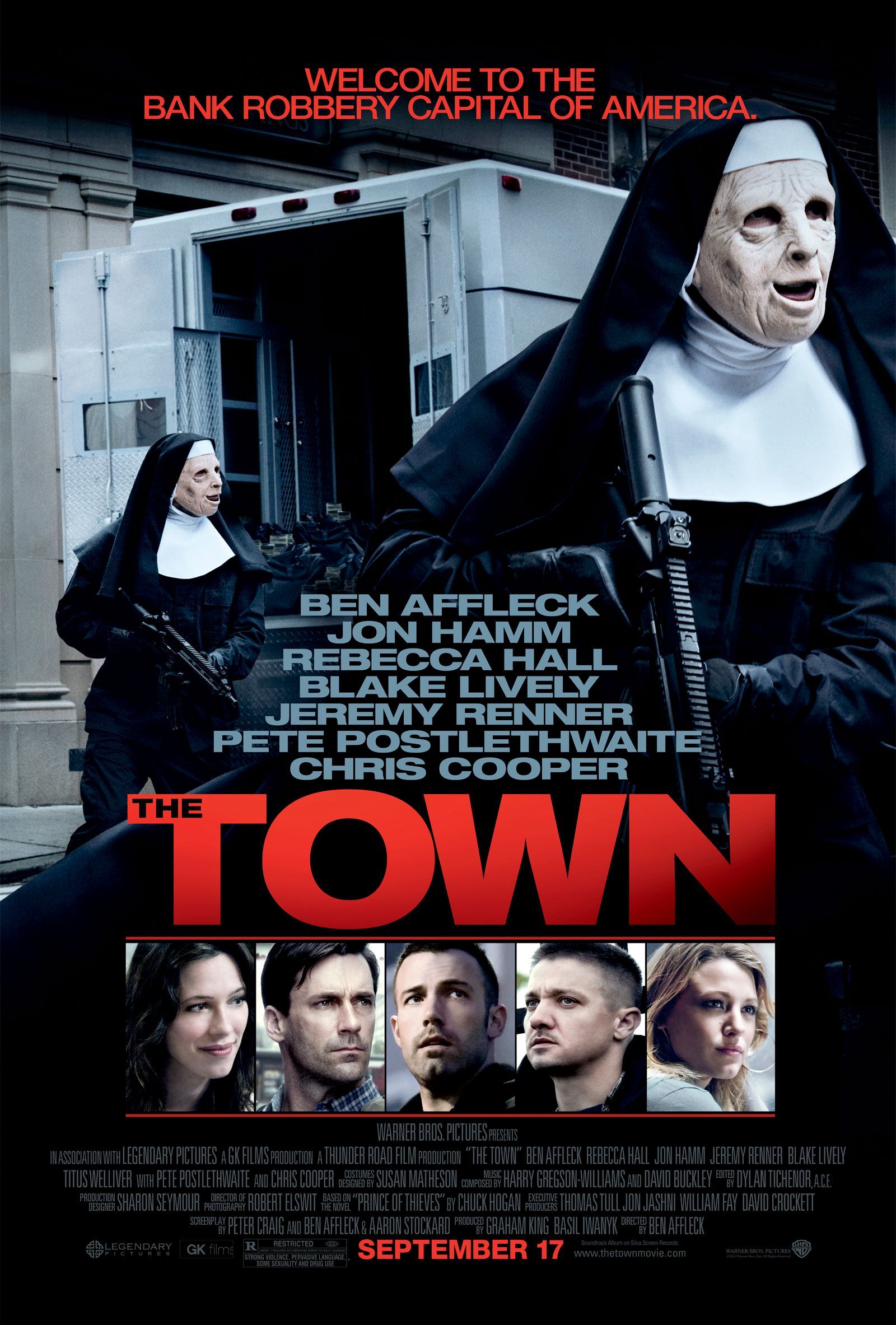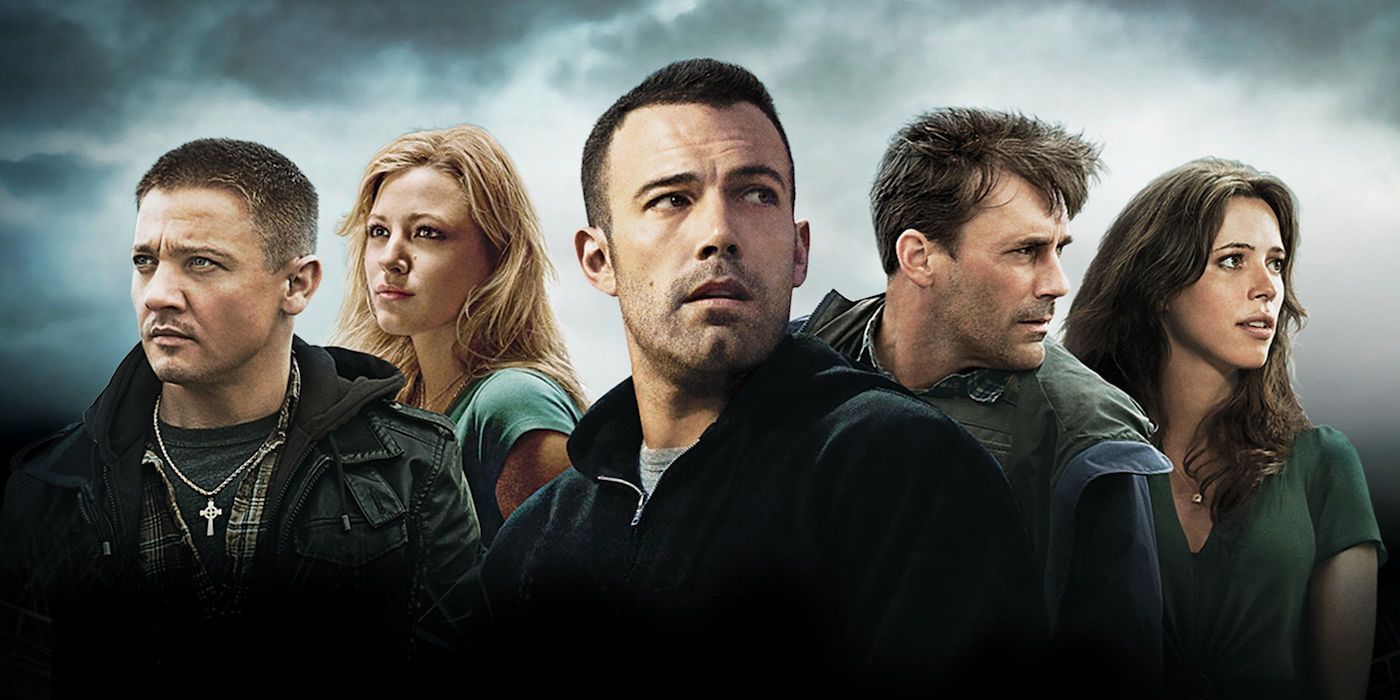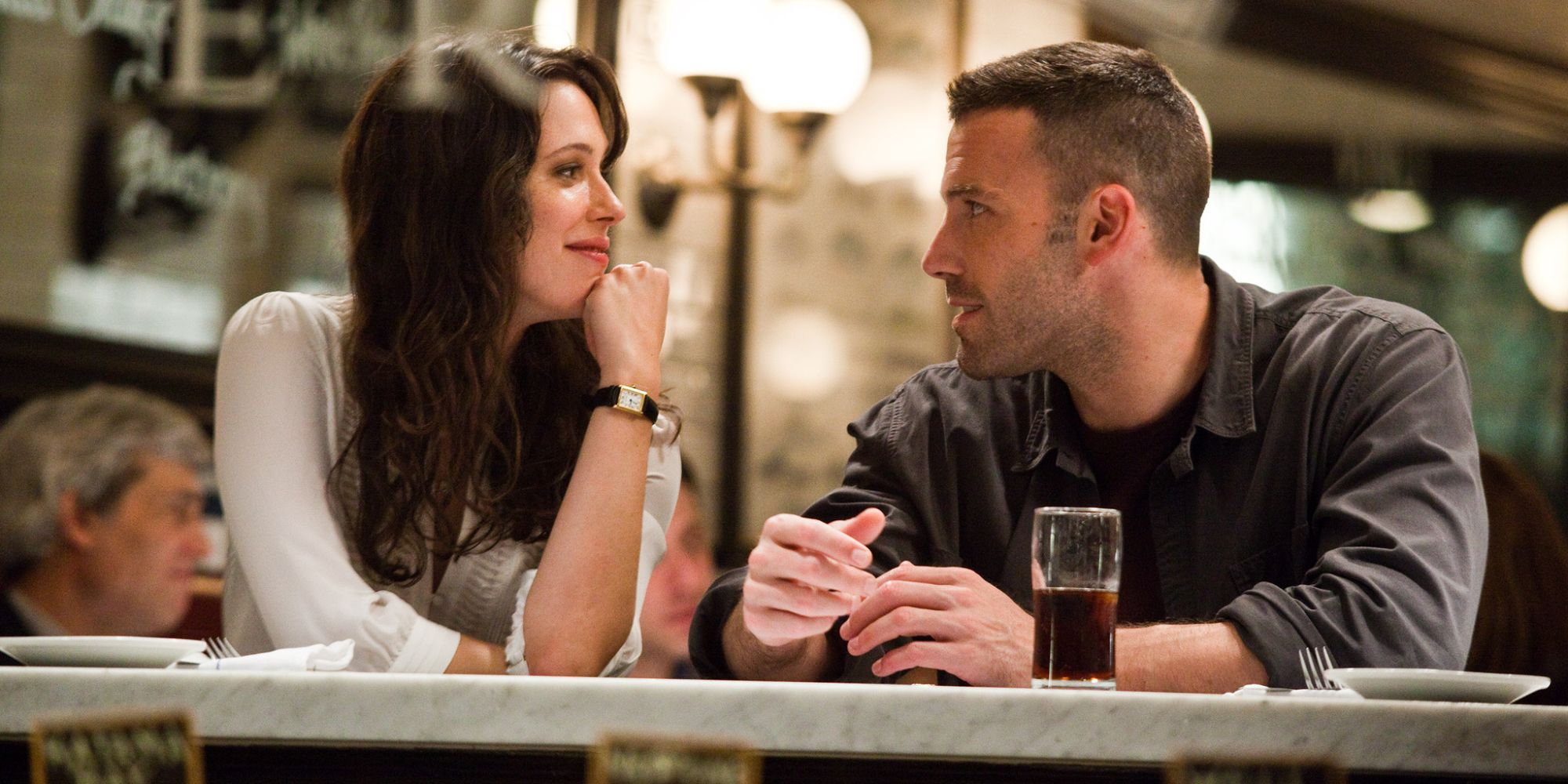The Big Picture
- Ben Affleck's The Town pays homage to heist dramas with a modern twist and perfect casting.
- The alternate ending shows a fatalistic side of crime and highlights themes of punishment.
- Affleck's portrayal of Charlestown's cyclical criminal world challenges the romanticized notion of crime.
Since Ben Affleck emerged as a filmmaker, he has always delivered the goods. While his films never reinvent the wheel, they utilize the essential traits of genre storytelling while giving them an ever-so-slight modern touch. With Gone Baby Gone, Affleck re-charged the seedy and mysterious thrills of the noir genre. With Argo, the actor-director brought the '70s political thriller back into the fold. Nowhere were Affleck's homages more present than with The Town, his classical interpretation of the heist drama/thriller. Affleck's precise genre sensibilities, combined with perfect casting and vibrant characterization of Boston, resulted in the most satisfying heist movie in recent years. The ending of The Town put a bow on the story of a career bank robber eying one final job, but its alternate ending showcased the harsh, fatalistic side of crime that would have left viewers unsettled.

The Town
- Release Date
- September 15, 2010
- Director
- Ben Affleck
- Cast
- Ben Affleck , Rebecca Hall , Jon Hamm , Jeremy Renner , Blake Lively , Slaine
- Runtime
- 123
Ben Affleck Pays Homage to Crime and Heist Dramas of the Past in 'The Town'
Affleck's second film in the director's chair, based on the novel Prince of Thieves by Chuck Hogan, tells a story located in the "bank robbery capital of America," a title the film ascribes to Charlestown, a neighborhood of Boston, MA. Doug MacRay (Affleck) is the leader of the most feared bank robbery crew in the town alongside James "Jem" Coughlin (Jeremy Renner). Their criminal enterprise begins to go awry when Doug falls in love with Claire Keesey (Rebecca Hall), who was taken hostage by the crew during the opening bank heist. Feeling jaded by life as a thief and stricken with true love, Doug looks for a way out, even if it requires one last job. Before he can think about setting up a new life for himself and Claire, Doug must evade the pursuit of FBI Special Agent Adam Frawley (Jon Hamm), who is right on his tail.
Released in 2010, The Town is as much of an homage to the city of Boston as it is to the heist genre, notably Heat and The Friends of Eddie Coyle, with the latter being a seminal Boston-set film. The roots of Michael Mann's meditation on crime and punishment are inextricable to any heist film. Affleck himself cited the groundbreaking car-chasing police procedural, The French Connection, as an influence, particularly when filming the North End chase. The Town is also indebted to the work of Martin Scorsese and Sidney Lumet, two filmmakers who thrived off urban environments and examined the criminal lifestyle as the ultimate burden on the soul. More than any visual motif or character arc, the heist genre staple most realized in The Town is the "one last job" narrative beat. The dispirited criminal, who knows no other life besides a life of crime, finally possesses the urge to live a stable and tranquil life. To achieve that utopia, they must complete a final heist that will set them up for a peaceful future.
The Alternate Ending of 'The Town' Depicts a Fatal Demise for Ben Affleck's Doug MacRay
Doug is well aware that engaging in an intimate relationship with a potential witness in Claire egregiously violates the criminal honor code. This reckless choice could send him and his entire crew to prison, especially when Frawley begins investigating Claire as an accomplice. Doug and Jem orchestrate their most daunting task, a heist at Fenway Park, the iconic home of the Boston Red Sox. Jem is killed by FBI SWAT agents during a shootout. Doug manages to escape the crime scene, and he takes care of loose ends by killing a local Irish gangster, Fergie (Pete Postlethwaite), who previously threatened to harm Claire if he refused to partake in the heist. Sometime later, Claire finds a bag of money in her garden left by Doug, who hopes to eventually see her again. Claire donates the money to the hockey arena that formed a once budding hockey star in Doug. The film concludes with a picturesque shot of a lonely, but presumably safe, Doug looking out at the water in his new home in Florida.
Within the context of the film, the ending is a hopeful, if not bittersweet, conclusion. Some might argue that the story of a lifelong bank robber should not end so cleanly. Logically, and for the sake of artistic expression, Doug should either be in handcuffs or have his soul forever corrupted. The deleted alternate ending of The Town is not so kind to its protagonist. After the FBI shootout during the Fenway heist, the deleted ending shows Doug, donning a cop uniform as a disguise, confronted by Alex (Isaac Bordoy), the gangster beaten by Doug and Jem as retribution for harassing Claire earlier in the film--the scene that spawned from Jem's memorable line, "Whose car are we taking?" Suffering from grave injuries from the attack, Alex now seeks his own revenge. The tense stand-off ends with Alex shooting Doug multiple times, leaving him dead on the streets. The film closes with no romantic gesture to Claire or suggestion of salvation. Doug's dream of retreating from Charlestown is a fleeting wish, as one of the last things he sees is a distant plane in the sky.
How the Alternate Ending of 'The Town' Highlights the Themes of Crime and Punishment
Doug's demise coming at the hands of a character both he and the audience had forgotten about is undoubtedly cruel, but it is also a just source of karma in the "ethics" of the criminal underworld. They say "crime doesn't pay" for a reason, and the original ending cheats on that mantra, as Doug and Claire can walk away with monetary gains scot-free. The Town's alternate ending follows the principle of classic Warner Bros gangster movies when the likes of James Cagney and Edward G. Robinson had to atone for their sins. The only reasonable source of retribution was a bloody demise. One could argue that Affleck undermines his romanticized portrait of Charlestown as a cyclical den of bank robbing. When you're a Charlestown native, you remain a lifetime resident. If you belong to a bank-robbing family, you follow the family tradition. Doug's relationship with his incarcerated father, the notorious thief, Stephen MacRay (Chris Cooper), highlights Affleck's commentary on how the sins of one's parents will always linger with future offspring. Crime is in his blood, whether his drive for bank robbing is burgeoning or dormant. What's even more punishing is that the alternate ending shows Doug being fatally punished for an act driven by sentimentality in defending Claire's honor. In Charlestown or any world of crime, sentimentality gets you killed.
The alternate ending may not have been what audiences were clamoring for in 2010, but in retrospect, a fatalistic conclusion to The Town best serves the thematic trends that Ben Affleck sought to mimic. The audience is led to believe that, to survive in Charlestown, one must kill, or be killed. The validity of Doug being permitted to escape his criminal life is up to the viewer, but there's no question that Affleck's choice for a bittersweet coda starkly contrasts with Mann and Scorsese's fatalistic examinations of crime.
The Town is available to rent on Amazon in the U.S.


